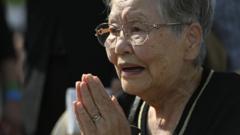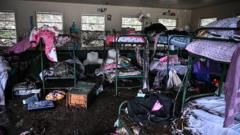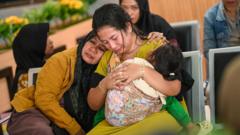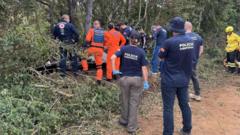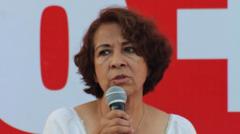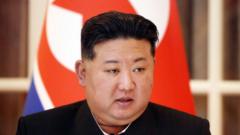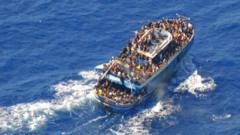During a solemn ceremony marking the 80th anniversary of the atomic bombing, Nagasaki’s mayor Shiro Suzuki urged for an end to current global conflicts, emphasizing the risks of a future nuclear war. The ceremony, which included emotional tributes and reflections from survivors, reminded attendees of the devastating impact of nuclear weapons and called for lasting peace.
Nagasaki Remembers Atomic Attack: Mayor Calls for Global Peace as Risks of Nuclear War Loom

Nagasaki Remembers Atomic Attack: Mayor Calls for Global Peace as Risks of Nuclear War Loom
On the 80th anniversary of the atomic bomb attack, Nagasaki's mayor warns of potential nuclear conflict amid ongoing global wars.
The mayor of Nagasaki, Shiro Suzuki, has issued a heartfelt plea for global peace on the 80th anniversary of the U.S. atomic bomb attack that devastated the city. In his Peace Declaration during a solemn ceremony held to commemorate the event, Suzuki expressed deep concerns over the escalating conflicts worldwide, asserting, "If we continue on this trajectory, we will end up thrusting ourselves into a nuclear war." The bombing on August 9, 1945, killed approximately 74,000 people and was instrumental in hastening the conclusion of World War II. Survivors have sufferred lasting health effects, including leukemia, as a result of exposure to radiation.
This commemorative event follows shortly after the anniversary of the initial atomic bombing of Hiroshima on August 6, where around 140,000 people lost their lives. The Nagasaki bomb was even larger and more destructive, obliterating entire communities in an instant. The ceremony began with a moment of silence and featured Nagasaki’s twin cathedral bells ringing in harmony for the first time since the attack, symbolizing peace and hope.
A poignant moment included water offerings, honoring the cries of victims 80 years ago who begged for water as they faced impending death from burns. Hiroshi Nishioka, a 93-year-old survivor, recounted the horrors he experienced as a child during the bombing, saying, "Even though the war was over, the atomic bomb brought invisible terror." This reflection highlights the ongoing trauma faced by survivors of such atrocities.
Atsuko Higuchi, a local resident, shared her sentiments about the importance of remembering these tragic events, stating, "Instead of thinking that these events belong to the past, we must remember that these are real events that took place." Currently, the world wrestles with several bloody conflicts, notably the ongoing war between Russia and Ukraine, and tensions in the Israel-Hamas conflict.
Last year, in a controversial decision, officials had opted not to invite representatives from Israel to the ceremony due to security concerns; however, this year, invitations were extended to Israel, Russia, and Belarus, which highlights the intricate web of international relations at play. Despite the existence of the Treaty on the Prohibition of Nuclear Weapons, enacted in 2021 and ratified by over 70 countries, major nuclear powers continue to oppose it, insisting that their arsenals provide necessary deterrence.
As Nagasaki and Hiroshima reflect on their painful past, the call for a future free from the threat of nuclear warfare resonates more than ever, as world leaders grapple with the implications of conflict and the visions for peace.


